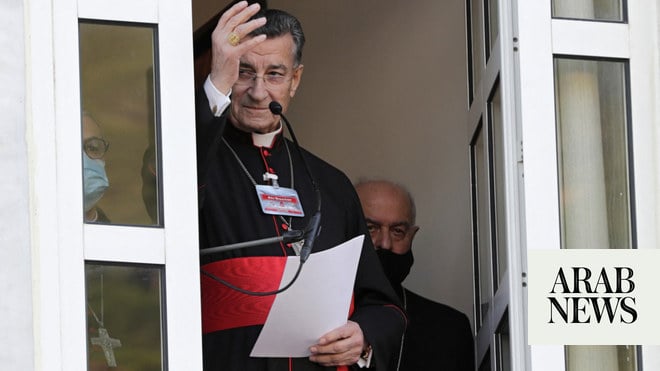
Soon after the Syrian regime, backed by Russia, recaptured the Eastern Ghouta and Homs countryside, discussions have started to emerge in Moscow, Tehran and Damascus over the “zones of foreign influence” in southwestern, northwestern and southeastern Syria
Discussions in Berlin, Paris and other capitals, however, shifted towards the political process and the fate of the Geneva and Astana peace talks.
The belief in these capitals is that the conflict is now no longer about the Syrians: regime vs. opposition, but it is now part of a greater game. Based on this, German Chancellor Angela Merkel proposed to Russian President Vladimir Putin on Friday the launch of a new “work group” on Syria that would include Russia, the US, Germany and France.
French President Emmanuel Macron will likely reiterate the idea to Putin when they meet in St. Petersburg on May 25. Paris had previously proposed the formation of a Syria “contact group”, but it never materialized.
Other ideas include merging the Astana group, of Russia, Iran and Turkey, with the US, France, Britain, Saudi Arabia, Jordan and Germany.
An obstacle in this proposal is Washingtons refusal to sit at the same table as Tehran, especially in wake of President Donald Trump’s decision last week to the withdraw from the 2015 Iran nuclear deal. The US also recently refused to attend this week’s latest round of Astana talks. Washington still prefers the Geneva peace course, even though it is not wielding enough of its influence to move it forward.
For its part, Moscow is committed to Astana, as is Ankara, which has grown to prefer it over the Geneva talks and implementation of United Nations Security Council resolution 2254.
It was decided during the latest Astana talks to hold the next meeting in Sochi, Russia in July. The talks will focus on the political aspects of the Syrian crisis whereas Astana is dedicated to addressing military affairs and building trust between various powers.
Moscow faced difficulties in persuading Damascus to go through with the political course, which called for the formation of a constitutional committee by UN special envoy to Syria Staffan De Mistura. This demanded a meeting between Putin and regime leader Bashar Assad, who agreed to send a list of potential candidates for the committee, which would would be tasked with amending the current Syrian constitution.
This was not he only dispute between Moscow, on the one hand, and Tehran and Damascus, on the other.
The post-Ghouta operation phase also demanded a meeting between Putin and Assad. The two officials met in Sochi on Thursday.
Moscow prefers committing with the US and Jordan to the “southern truce.” Jordanian Foreign Minister Ayman al-Safadi had held talks with his Russian counterpart Sergei Lavrov on the “arrangements” linked to the South, such as opening the Nassib border crossing, avoiding military clashes and ensuring the withdrawal of Iranian militias from this area.
Tehran has however been pushing Damascus to launch a military operation to recapture southwestern Syria, which would bring Iran closer to the Israeli border.
Russia opposes such a “risky” move, which could be exploited by Israeli Prime Minister Benjamin Netanyahu to escalate the situation in order to “settle the score and prevent any Iranian presence in Syria.”
As for the northwestern Idlib region, Tehran and Damascus appear less eager to launch a military operation there in wake of an agreement reached during the Astana talks that would see the deployment of Turkish troops along 12 surveillance points. The troops would be deployed between Idlib, Hama, Latakia and Aleppo, which would effectively “isolate” Idlib.
The northeastern zone, meanwhile, is subject to Russian and American whims and the ties between them. It is the only region in Syria where the two countries actually have established some form of cooperation, whereas other regions witness tensions.
Tehran and Damascus, however, are gradually making life more difficult for the American and French troops deployed east of the Euphrates River and in the Tanf area. The two allies have been fueling the rhetoric of “resisting occupation” and rejecting any foreign troops on Syrian soil. The withdrawal of foreign troops was one element that was agreed upon by Putin and Assad during their meeting on Thursday.












